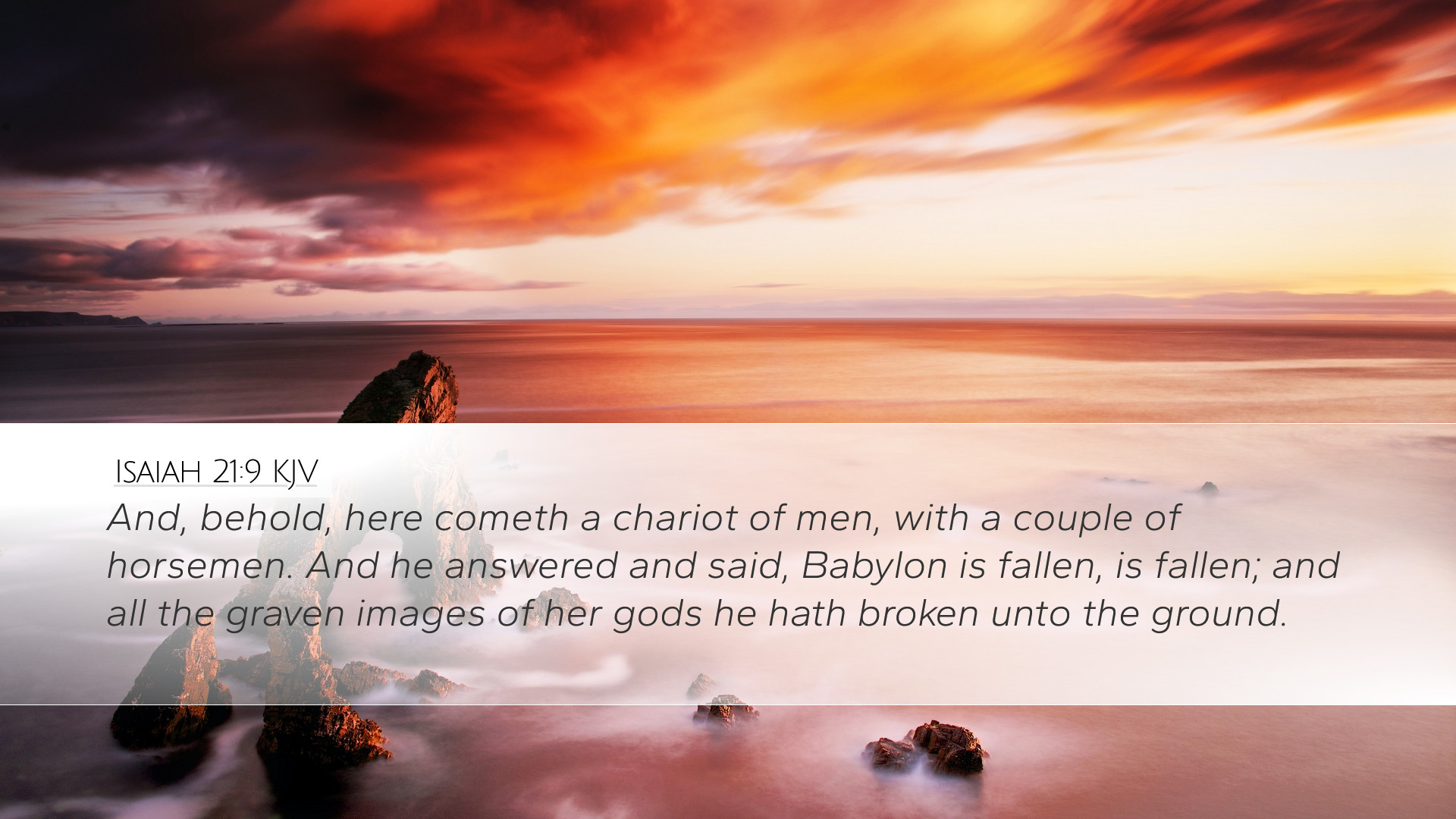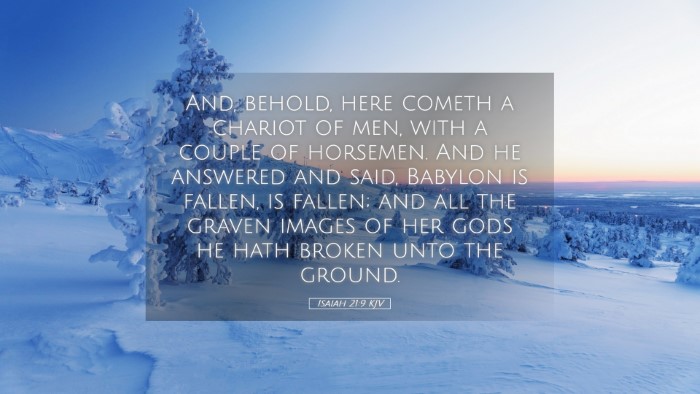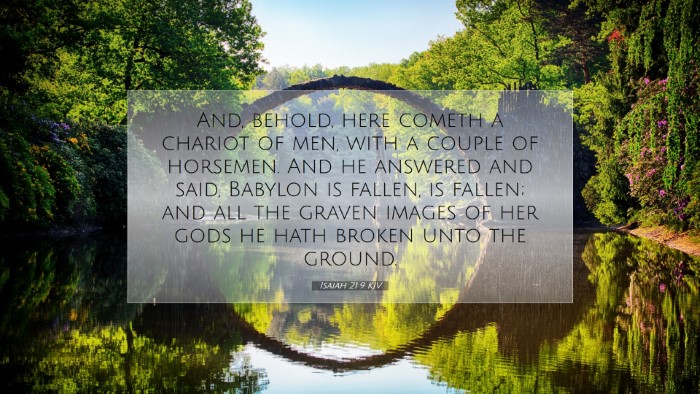Bible Commentary on Isaiah 21:9
Verse: Isaiah 21:9 - "And, behold, here cometh a chariot of men, with a couple of horsemen. And he answered and said, Babylon is fallen, is fallen; and all the graven images of her gods he hath broken unto the ground."
Introduction
This verse from Isaiah depicts a prophetic announcement regarding the fall of Babylon, a significant theme throughout the Book of Isaiah. Scholars and theologians highlight the gravity of this declaration, representing not just a historical event but also a theological assertion about God’s sovereignty over nations.
The Context
To understand Isaiah 21:9 adequately, it is essential to consider its historical and literary context. Isaiah prophesied during a time when Babylon was a looming power, threatening Israel and nations around them. The prophecy serves as God’s assurance to His people that despite the temporary might of Babylon, its downfall is ordained.
Commentary Insights
Historical Background
Matthew Henry notes that the fall of Babylon would not only be a military victory but a divine judgment. Babylon, known for its grandeur and idolatry, faced the inevitable wrath of God. This verse reflects both the announcement of its downfall and the pronouncement of God’s glory in judgment.
The Chariot and Horsemen
Albert Barnes comments on the imagery of "chariots of men" and "a couple of horsemen" which signify the urgency and severity of the impending judgment. These figures can be understood as messengers conveying the news of the fall of Babylon, emphasizing that this event cannot be attributed to mere human effort but is a part of divine providence.
Divine Judgment
Adam Clarke emphasizes the dual repetition of "is fallen, is fallen," highlighting the completeness of Babylon's downfall. This refrain echoes throughout Scripture as a powerful declaration of inevitable destruction, reminding believers that God’s will prevails over human rebellion and pride.
The Theological Implications
- Sovereignty of God: The passage serves to reinforce God’s dominion over all earthly powers. The certainty of Babylon’s collapse reiterates that no empire can stand against divine decree.
- Idolatry and Judgment: The focus on "graven images" underlines the theme of idolatry. God’s judgment is not arbitrary but is directed towards the false worship that characterizes Babylon's culture.
- Hope for the Oppressed: For the Israelites facing exile, this prophecy provides hope. God remembers His promises, and Babylon’s fall assures that they will not be oppressed indefinitely.
Relevance for Today
For pastors and theologians, Isaiah 21:9 serves as a reminder of the transient nature of worldly powers and the eternal sovereignty of God. It prompts reflections on contemporary idolatry and calls believers to examine the 'Babylons' in their own lives—anything that takes the place of God.
Applications
- Encouragement in Trials: Just as the Israelites were assured of liberation from Babylon’s bondage, believers today can take heart that God will deliver them from their struggles.
- Call to Repentance: The fall of Babylon calls individuals to confront their own idols, inviting repentance and a return to true worship.
- Proclamation of Hope: Pastors are challenged to herald the message of God’s sovereignty and ultimate victory over oppression, paralleling the hope expressed in Isaiah’s prophecy.
Conclusion
Isaiah 21:9 encapsulates a profound message about divine judgment and the ruin of prideful nations. Through the eyes of historical context, theological implications, and contemporary relevance, this verse remains a powerful call to faithfulness and recognition of God’s overarching plans. May it inspire believers to trust in God’s righteousness and sovereignty in all circumstances.


